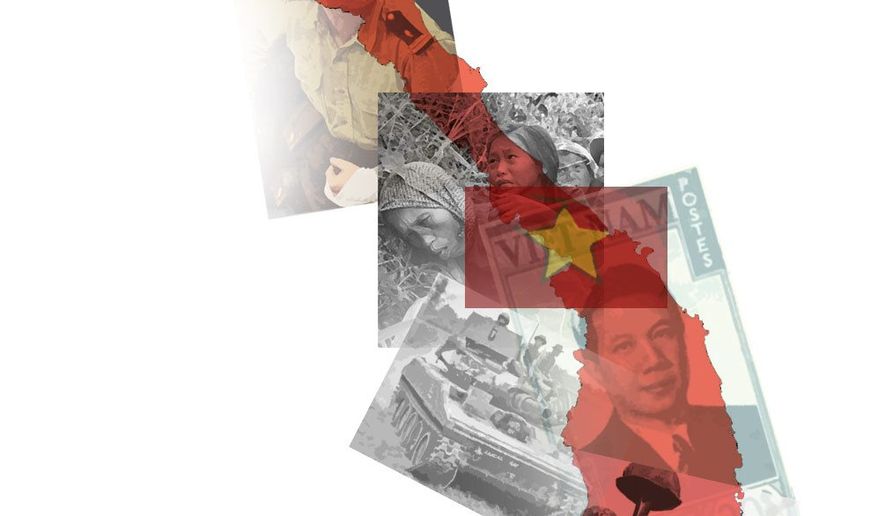OPINION:
Probably no event in contemporary American history touched more of its citizens than “Vietnam.” I use the quotes to describe a concept that includes more than the country, the American war and 58,000 lost American lives, and convoluted arguments still haunting our political discourse.
Millions of words have been written about this tragedy. Unfortunately, much is ill-informed, ideological and distorting the issues. I sometimes despair historical truth will ever emerge from all the claptrap.
My own “Vietnam” begins much earlier than for most Americans, decades before the massive U.S. military buildup and its disastrous end. It began when I was a callow youth, a budding journalist fascinated with Asia after a short collision with India as an ambulance driver in the British army in World War II. That led to Indonesia, and thence to Vietnam. It metamorphosed into roaming Southeast Asia as a freelancer.
My year in Hanoi during “the French war” (1950-51) taught me basics of the convoluted Indochina conflict. And they were far from those I — and some of my well-meaning anti-colonialist friends — thought we knew. We thought we had done our bit when in 1946 a few Vietnamese emigres — mostly sailors who had jumped French ships — staged a highly successful protest meeting at the old McAlpin Hotel on Herald Square in New York City. Do Vang Ly, then a Columbia University Vietnamese student but already a veteran fighter for his country, and I were the spark plugs.
We drew for participants on an early United Nations General Assembly session Asian luminaries and Americans noted for their interest in the new “underdeveloped countries.” They included everyone from Norman Thomas, the old U.S. socialist warhorse, to Vijaya Lakshmi Pandit, Indian leader Jawaharlal Nehru’s poet sister, and novelist Pearl Buck, epitome of Western interest in China. Naively, our purpose was to support Ho Chi Minh, purportedly heading a broad national alliance, still negotiating with the French for independence until almost by accident they stumbled into war. A quiet agent among us from Ho’s Paris “embassy,” we were to learn later, saw to it that we adhered to the Communist “line.”
In Hanoi, I learned that beyond the constantly mutating argument between the Vietnamese and the French was the more bitter struggle between the Vietnamese Communists and nationalists. During a 16-month post-World War II hiatus, when the Communists controlled the Tonkin Delta, they had massacred nationalist leaders. In my time, plaques — imitating those for fallen French Resistance heroes throughout Paris — marked the spot where anti-Communist nationalists were struck down. Those included, interestingly enough, the older brother of Ngo Dinh Diem, later to lead the Republic of South Vietnam — the man of that generation from their Confucian court family originally slated to have been the politician.
I still remember the shock when I wrote a friend back in Boston, Harold Isaacs, author of a famous tome on the Chinese Revolution, that were it a choice between Ho Chi Minh and the then-French puppet “chief of state” Bao Dai, I would choose the ex-emperor. As the dedicated southern Vietnamese Trotskyists calculated, it was clear what Ho’s Indochina would be, whereas the corrupt and incompetent Bao Dai might still afford an avenue to Vietnamese freedom.
These two currents — dedicated, efficient, merciless Stalinists with their calls on the Soviet Union and its propaganda and infiltration in the West — and the incompetent, feuding and often far too fallible non-Communists continued the Vietnamese struggle. That contest seemed to have been finally decided once and for all with the fall of the Saigon regime, the 40th anniversary of which we marked on April 30.
However painful the specter of Americans being hauled off the roof of the Saigon embassy as North Vietnamese tanks crashed through the Presidential Palace gates, the United States was ready to shrug and turn to other issues. Nor were officials in Washington ready to admit the cutoff in American military aid had produced the catastrophe. But alas, for the Vietnamese, it marked yet another milestone in that continuing struggle between an alien totalitarianism — morphing as Lenin had prophesied in his more pessimistic moments into traditional Asian despotism — and the universal search for freedom.
Tens of thousands fled the “reunification.” Unknown thousands died in unworthy seacraft. My friend, Do Vang Ly, managed only by an accident of fate to survive. Washing up on an eastern Malaysian beach, he and a little band shepherded by a Catholic priest, were about to be shoved back into the water by their fellow Southeast Asians (a long-forgotten footnote to all the horror). But he took his water-soaked diplomatic passport from his shoe and persuaded the police to take it to a friend, the Malaysian foreign minister.
As with more than 1.5 million other Vietnamese refugees, “Tony” and his family made it to America. But he did not live to see the democratic Vietnam to which he had devoted his life. The continuing travesty in Vietnam today mocks those hopes. Nor do the new self-serving American rationalizations — in which some of our most aspiring politicians indulge — mask that the old fight still goes on if under different auspices.
• Sol Sanders is a veteran international correspondent.




Please read our comment policy before commenting.